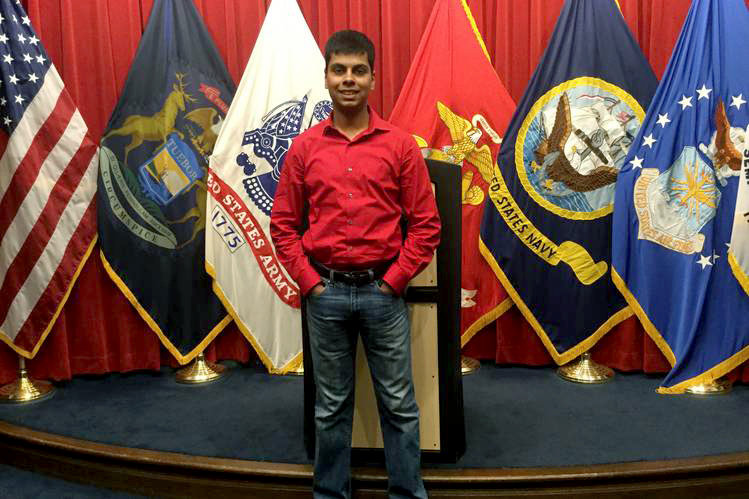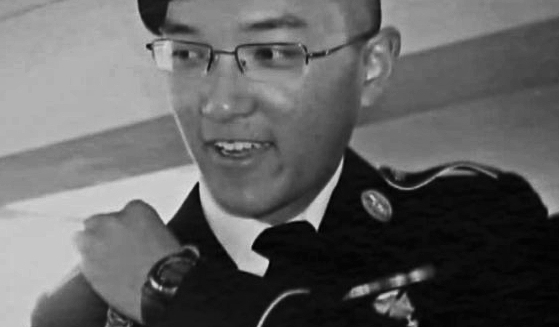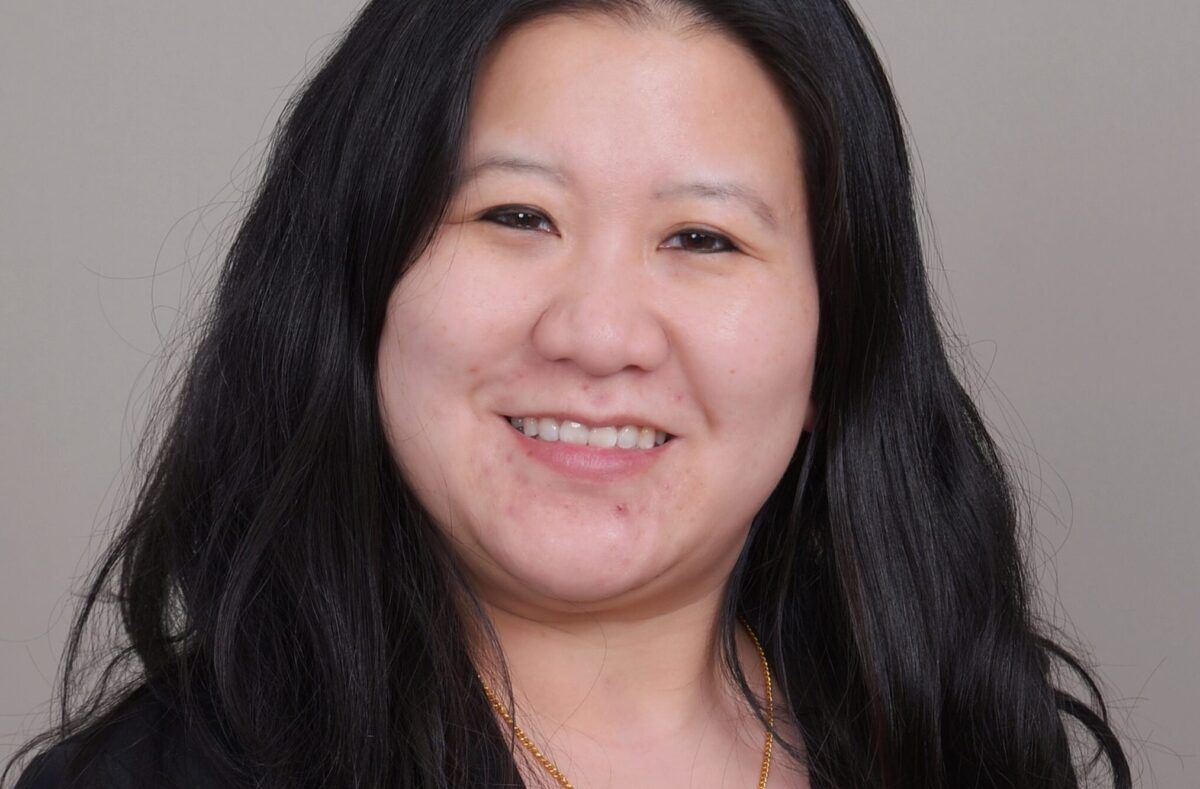
Raheel Siddiqui was just 20 years old when he first arrived at Parris Island, where the young Marine recruit faced his first days of training. The young Pakistani American Muslim had been recruited by the Marines while he was a student at the University of Michigan, where he had studied robotics and engineering and dreamed of one day working for the FBI.
On March 18, 2016, only eleven days into his training, Raheel Siddiqui was dead from injuries sustained following a 40 foot fall off of an outside stairwell balcony. Siddiqui’s death was ruled a suicide after a witness said that Siddiqui had became faint and then had thrown himself from the outdoor balcony ledge.
But, Siddiqui’s death has since sparked a major inquiry into a culture of hazing at Parris Island where ethnic and homophobic slurs are the norm and that likely contributed to Siddiqui’s death. An investigation has revealed that only one day after arriving at Parris Island, Siddiqui threatened to commit suicide. When evaluated by mental health professionals, Siddiqui reported that he felt his drill instructor was abusive. However, he withdrew his threat of suicide and was returned to training. Roughly a week later, Siddiqui complained of feeling ill and asked to be allowed to see a doctor. Instead, his drill instructor punished him with grueling on-the-spot physical training. When Siddiqui collapsed from fatigue saying that his throat hurt, his instructor slapped him several times (which is against Marine regulations) immediately before Siddiqui leapt to his death.
Siddiqui’s story is not the first to raise questions about the (mis)treatment of soldiers and cadets of colour in the US military.

On April 3, 2011, Lance Corporal Harry Lew of the United States Marines died by suicide following a self-inflicted gunshot wound while he was stationed at Patrol Base Gowragi in Afghanistan. Earlier, three of Lew’s fellow Marines were accused of contributing to Lew’s death by punching him, kicking him, and forcing him to do push-ups and leg lifts. US Representative Judy Chu, who is Lew’s aunt, demanded that the Government Accountability Office launch an independent investigation into military hazing. Months later, Pvt. Danny Chen died by suicide in Kandahar Province Afghanistan after enduring repeated, racial abuse from his fellow soldiers. During the trial, it was revealed that Chen was routinely subjected to racial slurs such as “fortune cookie,” dragon lady,” and “chink.”
Military suicides — committed by both active duty personnel and veterans — occur at nearly twice the national rate. It remains unclear, but likely, that a persistent culture of racial intolerance or hostility might contribute to the documented suicide deaths of non-white active military personnel. It’s hard to ignore the fact that just two years after the Asian American community was galvanized to action by the racist bullying endured by Pvt. Danny Chen in the weeks before his death, the same sorts of details are now emerging with regard to the toxic culture of military hazing at Parris Island endured by Raheel Siddiqui.
Indeed, the GAO investigation launched by the efforts of Representative Judy Chu following her nephew’s death concluded that hazing is widespread throughout the multiple branches of the American military. The report found that although each branch maintains policies against hazing and requires that records are kept regarding reports of such incidents, anti-hazing policies are rarely enforced and record-keeping is inconsistent. Meanwhile, as many as one-third of male Marines, and half of female Marines, report having experienced some form of hazing during their military careers. Writes the report:
Incidents of hazing in DOD and the Coast Guard can have effects that extend beyond their victims and perpetrators, undermining unit cohesion and potentially reducing operational effectiveness as a consequence. At the service-wide level, high-profile hazing incidents can shape public perceptions, potentially making recruitment and retention more challenging.
The report further says that hazing often targets non-white soldiers on the basis of their race or ethnicity, resulting in a racially hostile environment.
In particular, the military has not been impervious to post-9/11 rises in Islamophobia. The same drill sergeant involved in Siddiqui’s death was already under investigation for earlier complaints of Islamophobic abuse stemming from his treatment of a different Muslim American Marine. According to official reports obtained by The Washington Post, the instructor was accused in November of 2015 of repeatedly calling another Muslim American Marine a “terrorist,” and of accusing him of plotting to kill them all. In one incident, the instructor also ordered the Muslim American Marine into a large industrial clothes dryer, and turned it on several times for thirty seconds or longer, resulting in burns to the Marine’s neck and arms.
The Washington Post further reports that allegations of racially charged abuse by the unnamed Muslim American Marine and other soldiers was not taken seriously by military leadership. The Post reports that recruits were threatened with physical retaliation if they reported their abuse, and bribed with treats to keep them quiet. The drill instructor involved in the clothes dryer incident was permitted to continue to train recruits while under investigation incident. Even though his battalion was under investigation for racial abuse, Siddiqui’s battalion commander, Lt. Col. Joshua Kissoon, and his immediate supervisor, Col. Paul Cucinotta were permitted to train new recruits, and have only now been relieved of duty following Siddiqui’s death.
Despite multiple recent high profile cases of racially abusive hazing — many of them involving Asian American soldiers who subsequently die by suicide — the US military appears to have done little to protect new recruits of colour from racism, or to develop appropriate measures to deal with recruits who express suicidal thoughts or actions. Under the guise of “toughening up” fresh recruits, the various branches of the military appears to cast a blind eye to abusive, dehumanizing, and racist behavior. While three separate investigations have been launched to study the general problem of hazing at Parris Island, and while individual soldiers face scrutiny and even criminal charges, little has been done to correct an apparently systemic problem of racial intolerance in military culture.
Elizabeth OuYang of OCA-NY, who helped support the family of Pvt. Danny Chen during hearings in the wake of Chen’s death, said this about racism in the military in 2012:
“When superiors especially address someone like [chink] in front of his peers, it’s made to make somebody feel like they’re less than, unworthy, not part of a team. It’s degrading.”
Yesterday, the Council on American-Islamic Relations (CAIR) requested a federal civil rights investigation into the circumstances leading to Raheel Siddiqui’s death.

